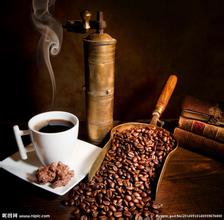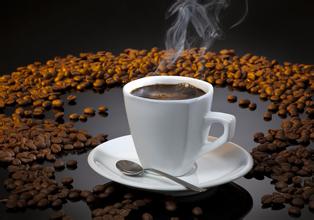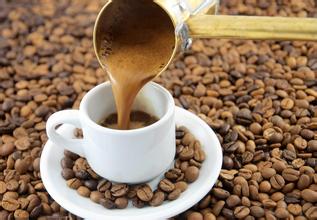Introduction of Coffee Flavor and Taste varieties in Cliff Manor
The "secret" of why Blue Mountain coffee tastes pure: their coffee trees are all on rugged hillsides, and the picking process is so difficult that non-local skilled women are simply unable to do it. It is very important to choose the right ripe coffee beans when picking. Immaturity or ripeness will affect the quality of the coffee. The picked coffee beans are shelled on the same day, and then let them ferment for 18 hours. After that, the coffee beans were cleaned and screened. The subsequent process is to dry, which must be carried out on the cement floor or on a thick blanket until the humidity of the coffee beans drops to 12% 14%. And then store it in a special warehouse. Take it out and roast when needed, then grind it into powder. These procedures must be strictly controlled, otherwise, the quality of coffee will be affected. The annual harvest period of Jamaican Blue Mountain Coffee is from June to November. Generally, hand picking is used. After picking, it goes through washing, peeling, fermentation, dehydration, drying, shelling, baking and other processes in order to get a blue mountain coffee ripe beans. In the process of raw bean processing, there are special personnel responsible for quality supervision in each step. For the very precious Blue Mountain Coffee, the packing and transportation mode adopted by the Jamaican government is also different. Unlike other coffees, Blue Mountain Coffee is not packed and transported in cloth bags at the rate of 60kg / bag, but in wooden barrels to the standards of 70kg/, 18kg/ and 15kg/ barrels. Jamaica is also the last country to still transport coffee in traditional wooden barrels. Jamaican Blue Mountain coffee beans must obtain a certificate of quality recognition issued by the Jamaican Coffee Industry Committee, which is the only body in Jamaica authorized to issue such a certificate. And each batch of exports will have specialized quality supervision experts responsible for sampling, roasting, grinding and brewing coffee, and finally make a judgment on whether to meet the standard. According to Jamaica's CIB export statistics as of 2004, 85% of the limited Blue Mountain 1 quota was allocated to Japan, 5% of the United States, 5% of Europe and 5% of other countries. However, in the global consumption distribution of authentic Blue Mountain No. 1, according to the International Coffee Association (ICO), China accounts for 15% of the consumption of Blue Mountain coffee, which stunns the world. The reason is that some shares of Blue Mountain coffee in Japan, Australia and Europe are exported to China through direct branches.
With the popularity of the third wave of boutique coffee in the world, the popularity of Blue Mountain coffee is not as high as it was several decades ago, and the domestic purchase of Blue Mountain is not as remote as it used to be, but the price is still very expensive.

Important Notice :
前街咖啡 FrontStreet Coffee has moved to new addredd:
FrontStreet Coffee Address: 315,Donghua East Road,GuangZhou
Tel:020 38364473
- Prev

Yinshan Manor Coffee Flavor Taste Variety characteristics of High-quality Coffee beans
The unique flavor of Blue Mountain Coffee is related to its unique geographical location and climatic conditions. Blue Mountain is located in the coffee belt between 25 degrees north latitude and 25 degrees south latitude, with fertile new volcanic soil, fresh air, no pollution, rainy all the year round and great temperature difference between day and night. Most importantly, every afternoon, clouds cover the top of the mountain, which not only shades the coffee trees naturally, but also brings abundant
- Next

Introduction to the characteristics of high-quality coffee beans in the producing area of coffee flavor varieties in Valenford Manor
The Jamaican Blue Mountains-John Crowe Mountains are listed as both natural and cultural heritage, giving the world-famous Blue Mountain Coffee from the region a lingering aftertaste. Jamaican Blue Mountain Coffee refers to coffee beans that grow in the Blue Mountain area (more than 1000 meters high) east of Kingston, Jamaica. Original imported ㊣ Jamaica Blue Mountain Coffee beans are only produced in the Blue Mountains, the legal production of Blue Mountain Coffee.
Related
- Does Rose Summer choose Blue, Green or Red? Detailed explanation of Rose Summer Coffee plots and Classification in Panamanian Jade Manor
- What is the difference between the origin, producing area, processing plant, cooperative and manor of coffee beans?
- How fine does the espresso powder fit? how to grind the espresso?
- Sca coffee roasting degree color card coffee roasting degree 8 roasting color values what do you mean?
- The practice of lattes: how to make lattes at home
- Introduction to Indonesian Fine Coffee beans-- Java Coffee producing area of Indonesian Arabica Coffee
- How much will the flavor of light and medium roasted rose summer be expressed? What baking level is rose summer suitable for?
- Introduction to the characteristics of washing, sun-drying or wet-planing coffee commonly used in Mantenin, Indonesia
- Price characteristics of Arabica Coffee Bean Starbucks introduction to Manning Coffee Bean Taste producing area Variety Manor
- What is the authentic Yega flavor? What are the flavor characteristics of the really excellent Yejasuffi coffee beans?

